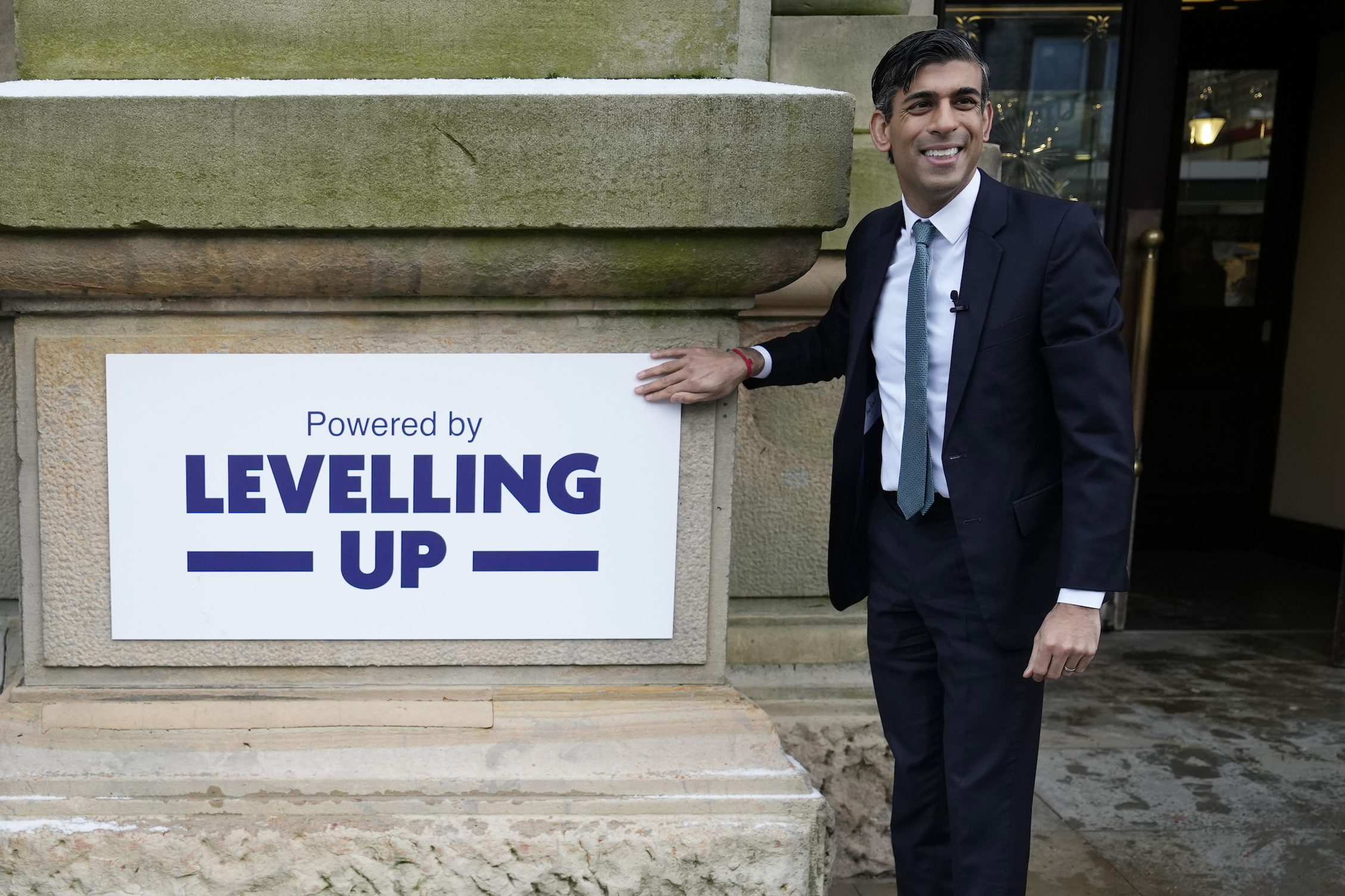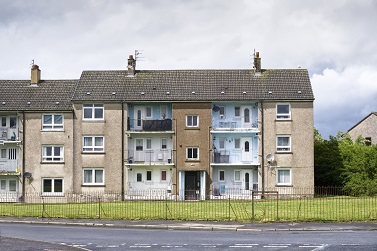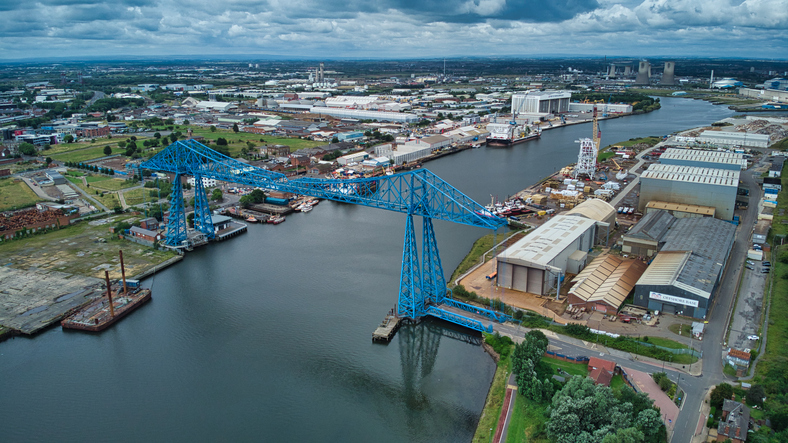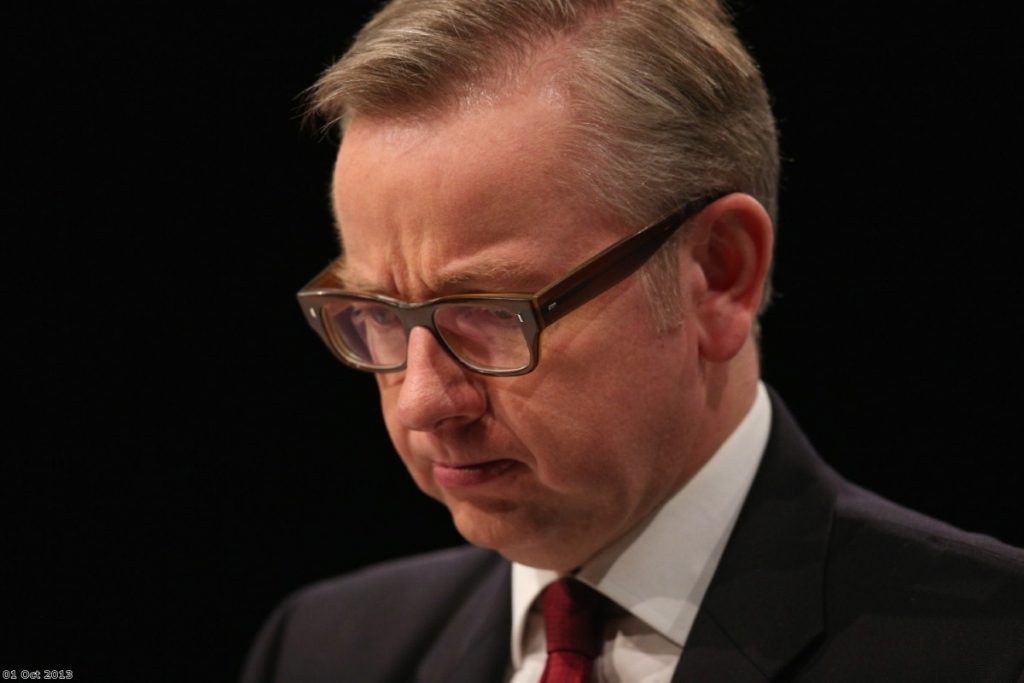What is levelling up all about?
Between 1998 and 2016, the economies of the North East, the West Midlands and Yorkshire and the Humber grew by around 30%. The same period saw an economic growth of 71% in London.
In 2020, the Institute for Fiscal Studies highlighted the “daunting task” of reversing the UK’s entrenched regional inequalities, complicated further by the impacts of Brexit and COVID-19.
In his first speech as the Prime Minister, Boris Johnson reiterated his plans to unleash the “productive power not just of London and the South East, but every corner of England, Scotland, Wales and Northern Ireland”.
Johnson’s Levelling Up Agenda, a core component of the Conservative Party’s manifesto in the 2019 General Election, sets out to address the UK’s economic imbalances by boosting prosperity beyond the capital and South East of England.



Towns like Middlesbrough are the focus of the government’s current levelling up agenda.
How bad is the North South divide?
It has long been recognised that the UK exhibits a ‘North South Divide’. This refers to a perceived trajectory separating the ‘wealthier’ regions of London, the South East, and the West from the rest of the UK.
From 2009 to 2019, the Institute for Public Policy Research found that London had received approximately £739 per capita in transport spending, compared to £305 per capita in Northern regions.
On average, households in the South also enjoy higher disposable incomes than those in the North. According to the Office of National Statistics, in 2018 London’s gross disposable household income lay at £29 362, compared to £16,995 in the North East.
According to the Institute for Fiscal Studies, property values in London have increased over six-fold since the mid-1990s, whereas those in the North East have seen little more than three-fold increases.
From 2010, the Conservative-led coalition government renewed a focus on boosting innovation in what it termed as the ‘left-behind’ North. This was articulated in the ‘Northern Powerhouse’ initiative, which aimed to establish a globally competitive area in the North, while redistributing wealth from London.
The Northern Powerhouse aimed to promote economic growth in core cities through improvements to infrastructure, education, science, and innovation.
National imbalance takes root in economic inequalities, which have knock-on implications for education, healthcare, employment, and broader standards of living.
The UK2070 Commission – an independent inquiry into the UK’s city and regional inequalities – produced a report highlighting the extent of UK’s North South divide. The report found that a child qualifying for free school meals in Hackney, London, is three times more likely to attend university than a child growing up in Hartlepool under similar economic circumstances.
It is likewise predicted that pupils in the South of England are 40% more likely to achieve top GCSE grades than those in the North of England, who at the same time, are vastly underrepresented at the Universities of Oxford and Cambridge.
In 2015, a study part-funded by Public Health England predicted significantly lower-than-average life expectancies in the North and the Midlands.
Nonetheless, the rigid premise of a North South Divide conceals pockets of poverty in southern regions. As a result of this blanket division, many of the South’s coastal towns and some rural areas have fallen further down the list of government priorities. While the North is home to a majority of deprived areas, regions in South Wales and Cornwall remain among the poorest in the UK.
So, how is the government levelling up?
In 2020,the Conservative government announced a £4.8 billion levelling-up fund to support communities with regeneration projects to be delivered by 2024. An additional £800 million was to be distributed throughout Scotland, Wales and Northern Ireland. Through the fund the government has backed projects in Aberdeen, Bury, Burnley, Lewes, Clwyd South, Stoke-on-Trent, Ashton under Lyne, Doncaster, South Leicester, Sunderland and West Leeds
These funds were established in conjunction with a Shared Prosperity Fund, set out to replace the EU’s Regional Development Fund following the UK’s departure from the EU. The Government pledged that the Shared Prosperity Fund would be used to “reduce inequalities between communities” by targeting places most in need. The fund is set to support ex-industrial areas, deprived towns, and rural or coastal towns by investing in the people, communities and local businesses.
In addition to direct investment, the government is advancing plans to relocate key business hubs and Governmental bodies to regions further North. Steps have already been taken to dilute the London-centric civil service through the development of a Newcastle Campus.
In a similar vein, the Ministry of Housing, Communities & Local Government has been tipped to move to Wolverhampton, the Department for Digital, Culture Media & Sport to Manchester or Leeds. In the 2021 budget it was announced that a large part of and HM Treasury (with 750 jobs) was to move to Darlington.
These moves are hoped to generate a higher number of jobs outside London, thereby boosting local spending and innovation. As testament to this, the BBC’s recent move to Manchester was said to have brought 4,500 jobs into the local area, only 2,000 of which came from the BBC itself.
The government’s current freeports policy is also presented as being part of an attempt to regenerate the economy of particular regions.
In early 2022 the UK government unveiled a levelling up White Paper. In May 2022 Queen’s Speech the government announced plans for its Levelling up and Regeneration Bill. The Bill will give local mayors and council leaders the power to let out empty high street retail buildings for residential use. It also contains plans for reform of the planning system.
Criticisms of the levelling up agenda
The government’s levelling up agenda been criticised for adopting a largely ‘place-oriented’ approach which neglects the people there within. The consultancy company Frontier Economics stresses that effective regional policy is ‘people-orientated’, and aims to enhance the employment and salary prospects of those living in particular areas.
There are also questions around the extent to which relocating government jobs to Northern cities will boost sustainable growth in those areas. Such a move may exacerbate the socio-economic conditions in cities whose local population is unable to reap the benefits. New employment opportunities will only be beneficial to those whose skillsets fulfil the job criteria. If local residents are unqualified for the newly created jobs, an influx of workers will assume these positions and, in doing so, worsen employment rates for local, lesser skilled residents. Further to this, it is often the case that highly skilled workers commute from suburban areas, thus spending very little money or time in the target city. It has been tendered that a more effective approach may be to increase educational funding and training grants awarded to local residents.
Former deputy Prime Minister Lord Heseltine has argued that addressing the issue of regional inequality requires greater local control, saying, “There should be no presumption that civil servants in London devising schemes which seem sensible to ministers should be imposed on local economies.”
A similar stance was voiced by Sara Longlands, director of IPPR North, who disputed that a levelling-up fund should be controlled by Westminster. Rather than transferring jobs, Longlands holds that local leaders face the task of gentrifying their areas, ultimately making them more attractive places to live and work. This would involve a complete reorganisation of government, which reduces centralisation and grants greater authority on a regional level.
Other critics have suggested that for meaningful regional redistributive effects, further reforms in taxation are needed. These comments are most notably made in relation to the current Council Tax valuation structure, which is considered to substantially under tax the owners of expensive properties in places like south west London.
Finally, the government’s ‘north-south’ approach is said to overlook pockets of poverty in typically ‘well-off’ regions in the South. The Institute for Fiscal Studies has found that regional inequalities are far too acute to be viewed on a regional basis, with many of the UK’s southern towns struggling the most. This situation was worsened by the 2020 covid 19 pandemic which had detrimental impacts on many of the South’s tourist-dependent economies.
Charity claims ‘biggest ever’ overnight cut to welfare mocks ‘levelling up’ agenda
Quotes
“It is very difficult to see how you level up without levelling down somebody.” – Lord Heseltine, 2020.
“Local leadership can make a huge difference to the look and feel of town centres, and if you change the quality of life in a town, you will get people who stay to live there rather than getting on the train to big cities, and you will create more opportunities for investment in our town” – Prime Minister Boris Johnson addressing MPs, 2020.
“And then I think we need to be more courageous in giving many more powers to these local elected leaders over decisions like transport, like skills, like business support, issues like health care, which we’re seeing, for example, in Manchester, where there’s real control over the NHS, a level of devolution, that doesn’t exist anywhere else in England.” – George Osbourne, the Great Northern Conference, 2020
“Infrastructure is decades away – very easy things for politicians to promise because actually it is not going to be delivered anytime soon” ….”But they can’t say that they are doing everything to the north by simply promising infrastructure in the distant future. They have got to deal with the here and now.”- Manchester Mayor, Andy Burnham, Radio 4’s Today Programme, 2019.
Statistics
Average household wealth fell by 12% in the North East and East Midlands between 2006 and 2018 but grew by nearly 80% in London. (Source – North East England Chamber of Commerce, 2020).
The UK is one of the most geographically unequal countries in the developed world; compared with 26 other developed countries, it ranks near the top of the league table on most measures of regional economic inequality. (Source – Institute for Fiscal Studies, 2020)
For every 12 jobs created since 2004 in southern cities, only one was created in cities elsewhere. (Source – The Centre for Cities, 2015)
Transport, which will be of particular importance for productivity growth, is a key driver of differences in spending across the country: at £653 per head, transport investment is 2.5 times higher in London than the average £260 per head in the rest of the UK. (Source – Institute for Fiscal Studies, 2020)
Think tank says government must address London’s problems alongside ‘levelling up’
Urban leaders call for a focus on skills and transport ahead of landmark ‘levelling up’ white paper
Transport ‘top up’ is ‘levelling up in practice’ says Chancellor ahead of Budget
‘Levelling up’ report authored by 10 Conservative MPs calls for a ‘new chapter’ of conservatism
Public services must be at the heart of efforts to ‘level up’ the UK

























